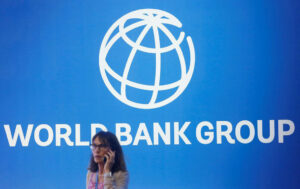WASHINGTON — The World Bank said on Tuesday it would halt new lending to the Ugandan government after concluding that its anti-LGBTQ law, which has been condemned by many countries and the United Nations, contradicts the bank’s values.
A World Bank team traveled to Uganda immediately after the law was enacted in May and determined that additional measures were needed to ensure projects were being implemented in line with the bank’s environmental and social standards.
“No new public financing to Uganda will be presented to our Board of Executive Directors until the efficacy of the additional measures has been tested,” the bank said in a statement, adding that such measures were now under discussion with Ugandan authorities.
“Uganda’s Anti-Homosexuality Act fundamentally contradicts the World Bank Group’s values. We believe our vision to eradicate poverty on a livable planet can only succeed if it includes everyone irrespective of race, gender, or sexuality,” the bank said.
“We remain committed to helping all Ugandans – without exception – escape poverty, access vital services, and improve their lives.”
World Bank President Ajay Banga, who took office in June after the Ugandan law was enacted, has come under pressure to respond to the Ugandan law. On June 15, 170 civic groups urged Banga to take “specific, concrete and timely actions” in response to the Uganda anti-LGBTQ law, including suspending future lending.
The World Bank had provided $5.4 billion in International Development Association financing to Uganda by the end of 2022, including many health and education projects that could be affected by the new law.
The existing portfolio will continue to disburse funds, even as new lending is put on hold, a World Bank source said.
Private sector projects backed by the International Finance Corporation and the Multilateral Investment Guarantee Agency (MIGA) would proceed only “on a selective basis,” the bank said in a separate note to staff seen by Reuters.
It said the IFC and MIGA would also implement additional measures to “ensure inclusion and non-discrimination as needed.”
In its statement, the World Bank said it would significantly increase third-party monitoring and grievance redress mechanisms with regard to the Uganda portfolio to allow the bank to take corrective action as necessary.
The law was enacted in May and carries the death penalty for “aggravated homosexuality,” an offense that includes transmitting HIV through gay sex. — Reuters

